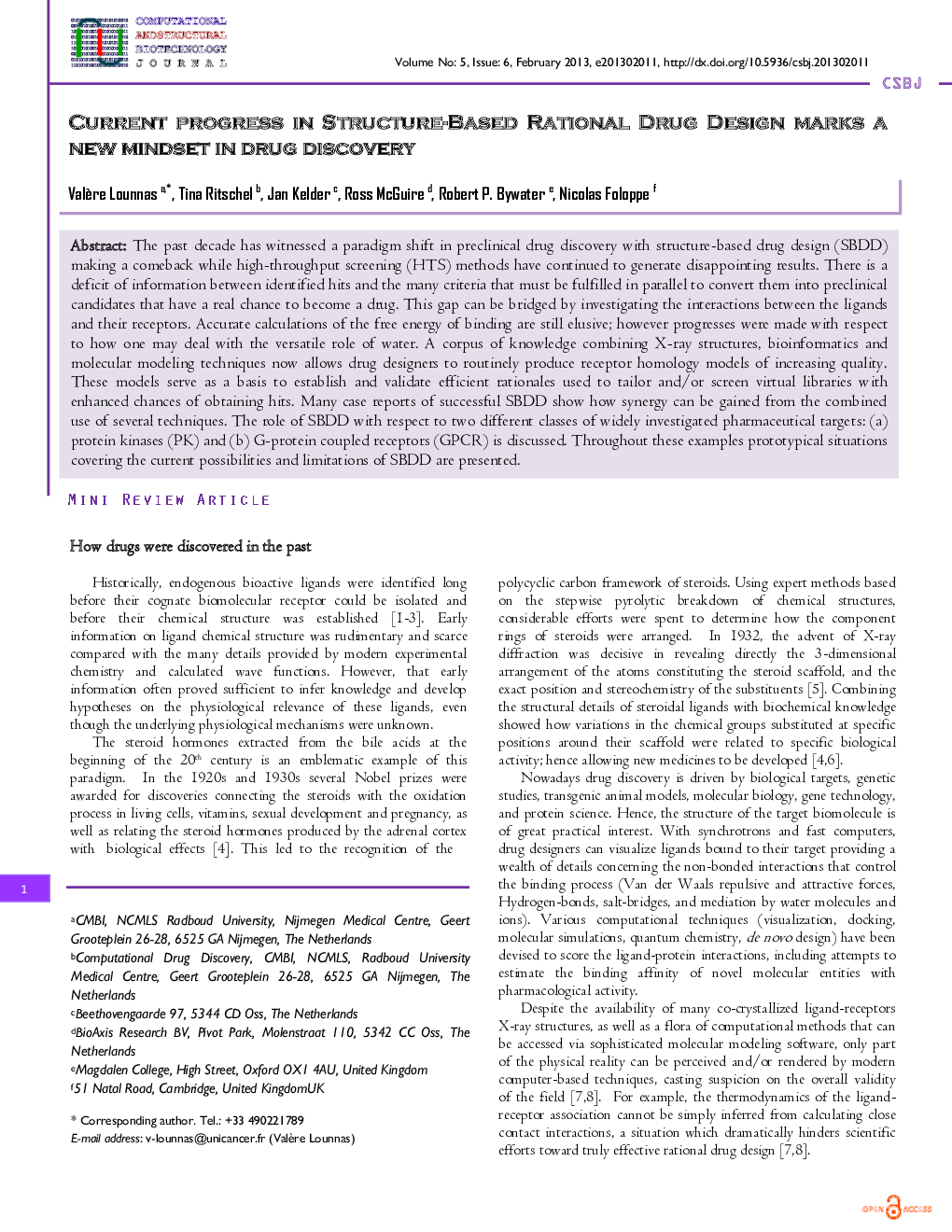| کد مقاله | کد نشریه | سال انتشار | مقاله انگلیسی | نسخه تمام متن |
|---|---|---|---|---|
| 2079250 | 1079852 | 2013 | 14 صفحه PDF | دانلود رایگان |

The past decade has witnessed a paradigm shift in preclinical drug discovery with structure-based drug design (SBDD) making a comeback while high-throughput screening (HTS) methods have continued to generate disappointing results. There is a deficit of information between identified hits and the many criteria that must be fulfilled in parallel to convert them into preclinical candidates that have a real chance to become a drug. This gap can be bridged by investigating the interactions between the ligands and their receptors. Accurate calculations of the free energy of binding are still elusive; however progresses were made with respect to how one may deal with the versatile role of water. A corpus of knowledge combining X-ray structures, bioinformatics and molecular modeling techniques now allows drug designers to routinely produce receptor homology models of increasing quality. These models serve as a basis to establish and validate efficient rationales used to tailor and/or screen virtual libraries with enhanced chances of obtaining hits. Many case reports of successful SBDD show how synergy can be gained from the combined use of several techniques. The role of SBDD with respect to two different classes of widely investigated pharmaceutical targets: (a) protein kinases (PK) and (b) G-protein coupled receptors (GPCR) is discussed. Throughout these examples prototypical situations covering the current possibilities and limitations of SBDD are presented.
Journal: Computational and Structural Biotechnology Journal - Volume 5, Issue 6, February 2013, Pages 1–14